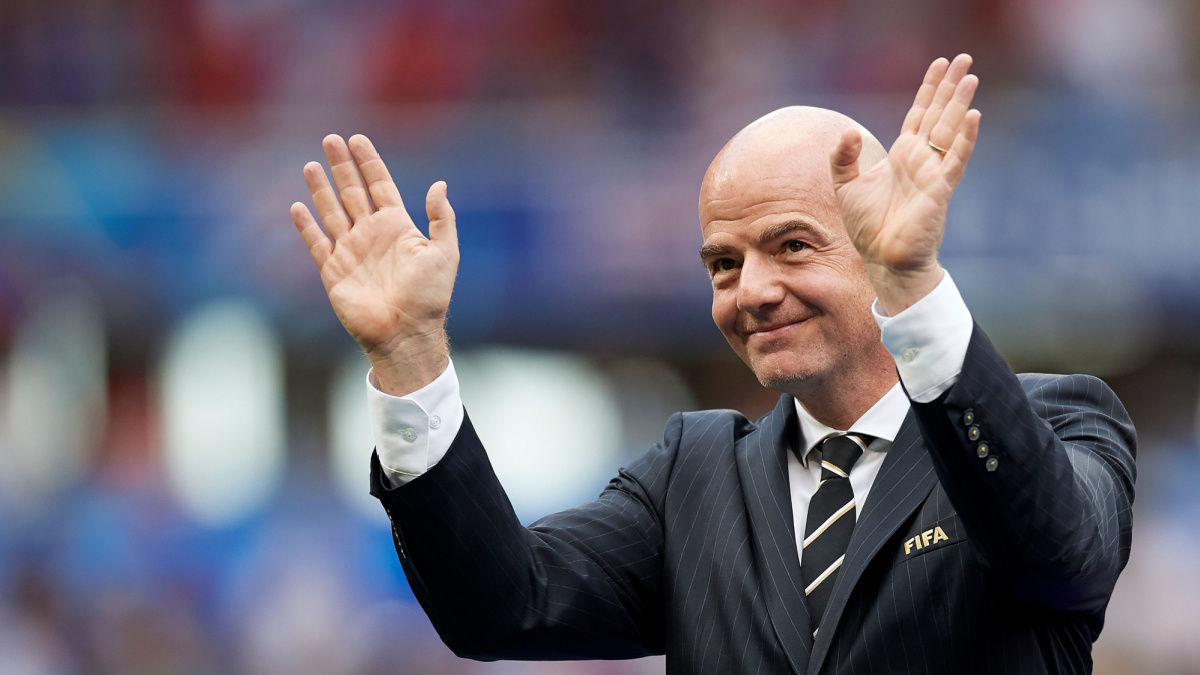FIFA needs the assistance of regional member associations in the fight against match-fixing and match-manipulation, the governing body’s President, Gianni Infantino, has asserted.
The global football federation held its first annual Integrity Summit late last week in Singapore, in which Infantino delivered an opening speech discussing the threat football faces from corruption and match-fixing.
“Match manipulation in football is something that we hear maybe less about in the news nowadays, but that does not mean that the threat has gone away,” he said. “On the contrary, football is a multi billion dollar industry and as such, is always going to be a tempting target for all kinds of criminal activity.
“We must ensure that the playing field remains level and the game free of malevolent outside influences because if it doesn’t, then the very existence of our beloved sport will be under threat. We have to remain on our guard.”
Infantino is not wrong when he noted that the global value of football makes the sport an ideal target for organised crime and corruption. Indicative of football wealth, Forbes estimated that in 2023 the world’s 30 most valued teams were worth an average of $2.17bn.
Meanwhile, football is by far the world’s most popular and widely viewed sport. This in turn makes it perhaps the most bet on sport. In the well-established and highly regulated UK betting market, for example, football has been the main betting market for the past few years, taking over from the traditional betting sport of horse racing in 2019.
Against this backdrop, football has been a target for corruption and criminal activity on numerous occasions. Italy is perhaps one of the best known examples of this, with the country witnessing the infamous Calciopoli betting scandal of 2006.
Thankfully for sport, controversies of this magnitude have not been seen in more recent years. However, as Infantino noted, the threat has never gone away, and probably never will, as long as opportunities for people to win money on the sport exist.
The International Betting Integrity Association (IBIA) has noted the prevalence of suspicious betting activity around football repeatedly in its quarterly and yearly reports. The sport is usually either the source of the most betting alerts or is second behind tennis.
In the IBIA’s last report, covering the whole of 2023, football accounted for 63 suspicious betting alerts. The IBIA stated that this was ‘consistent over time’, with 67 alerts in 2022 and 66 in 2021.
As the global governing body, it is FIFA’s duty to protect the integrity of its sport. This is a task that Infantino asserts FIFA cannot do alone however. It needs the support of its member associations at both the continental and national level, he said.
“FIFA is committed to preventing and sanctioning all forms of match manipulations, corruption and other unethical or illegal activities but we can only do this with your help,” he continued.
“FIFA’s Member Associations are responsible for combating and tackling match manipulation in their territories and nobody is immune from this threat.”
Infantno’s tenure as FIFA President has been the source of some controversies – although he is hardly the first leader of the association to have been the subject of the occasional negative comment or headline.
Readers will likely remember the controversy surrounding the awarding of the 2022 World Cup to Qatar. Although this decision was made prior to the start of Infaintio’s FIFA Presidency in 2016, the accusations of corruption and associated controversy continued up to, during and after the 2022 edition of the tournament.
These accusations of corruption were separate from the issue of match-fixing, however, and in this area, FIFA has been trying to make inroads. In 2020, the body signed an MoU with the UN Office for Drugs and Crime, renewing this in September last year to introduce the Global Integrity Programme.
With the global betting sector continuing to grow more and more, stakeholders are becoming more aware of match-fixing risks. For example, Brazil is preparing to launch a nationwide betting market later this year and match-fixing requirements have included prominently in licensing conditions.
Observers in markets such as Brazil have also spoken about the importance of player training and provision of anti-match-fixing tools. These are objectives shared with FIFA, and so hopefully a coherent integrity safeguarding strategy will come into form on a global scale, but this will not be an easy task.
























